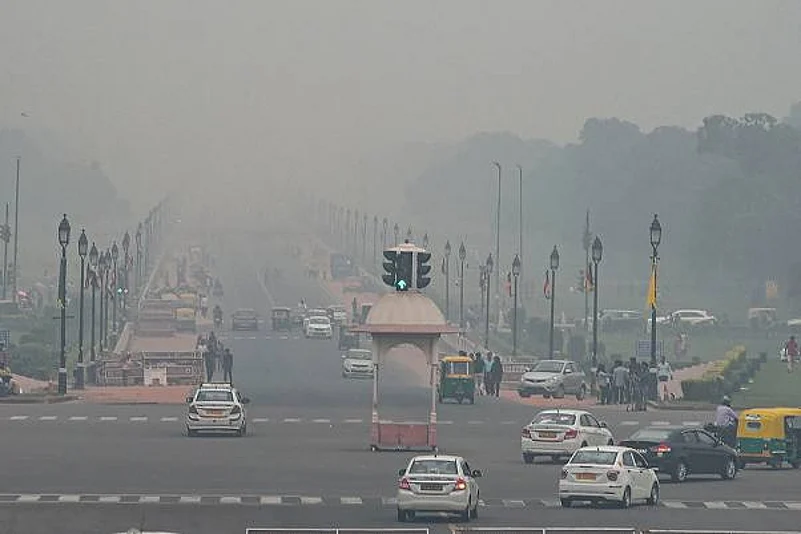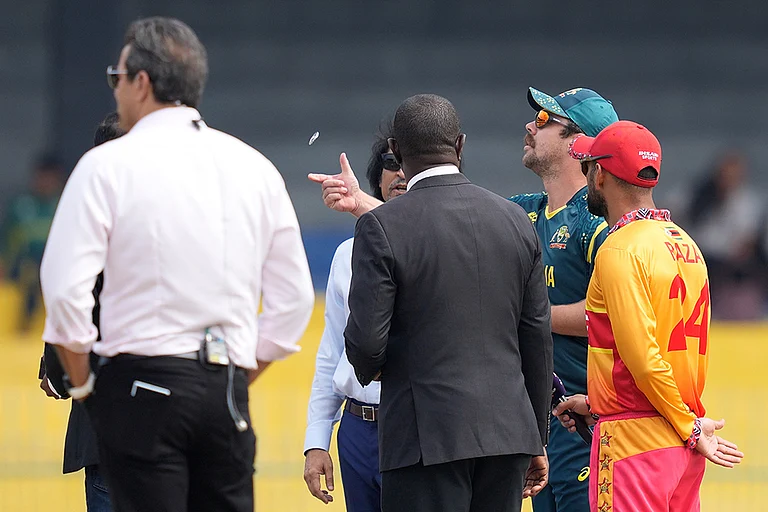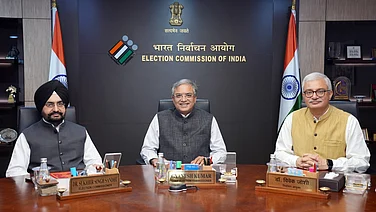The Delhi High Court on Friday directed the AAP government to treat as a representation three PILs challenging the odd-even scheme for motor vehicles, expected to be in force in the national capital from November 4-15 to control air pollution.
The court's directions come on a day Delhi's air pollution spiked to 'emergency' level, according to the Central Pollution Control Board. The national capital's pollution levels increasing overnight by around 50 points, taking the overall air quality index on Friday morning to 459.
To tackle the air pollution, the Arvind Kejriwal-led government has decided to implement the odd-even rule, which was first started in 2016. The scheme is a car-rationing method where cars with odd and even number plates will run on alternate days. The rule will apply to all non-transport four-wheeled vehicles and even those coming in from other states.
One of the petitions said the "cause and remedy was totally mismatched" by the rule as two-wheelers that cause maximum pollution were exempted, while CNG vehicles were not as it was difficult to check the CNG stickers on vehicles.
A bench of Chief Justice D N Patel and Justice C Hari Shankar directed the Delhi government to take a decision on the representations by November 5 and disposed of the pleas.
The bench disposed of all three petitions after Additional Solicitor General (ASG) Sanjay Jain, appearing for the Delhi government, told the court that the pleas would be treated as a representation and decisions would be taken in accordance with law, rules and regulations as early as possible and practicable.
The petition by social activist Sanjjiiv Kkumaar, had alleged that the scheme was being implemented "solely for vote bank politics and spending crores of rupees in advertisement and promotion in the guise of curbing pollution".
"There is discrimination based on gender also," it had also alleged, referring to the exemption granted to women under the scheme.
The exemptions granted to women was challenged in the plea by Shashwat Bhardwaj, who had also questioned the rationale behind exempting vehicles of judges, MPs, ministers and heads of various statutory bodies.
The third petition, by Santosh Gupta, had opposed the AAP government's decision not to exempt CNG vehicles under the scheme due to misuse of CNG stickers in the past.
The same bench had last week dismissed a similar plea against the odd-even scheme as the petition did not contain details of the road rationing policy and the petitioner had not made any representation to the government before approaching the court.
Delhi's air pollution has become a major challenge for the government.
A new analysis of the air quality life index (AQLI) on Thursday showed the average citizen living in the Indo-Gangetic plain region can expect to lose about seven years of life expectancy. Particulate pollution is high in states like Bihar, Chandigarh, Delhi, Haryana, Punjab, Uttar Pradesh and West Bengal.
The study by Energy Policy Institute at the University of Chicago (EPIC)showed that this is because air quality fails to meet the World Health Organization's (WHO) guideline for fine particulate pollution.
In 1998, the impact on people's lives would have been half of what it is today, with residents losing 3.7 years of life expectancy.
(With inputs from agencies)


























